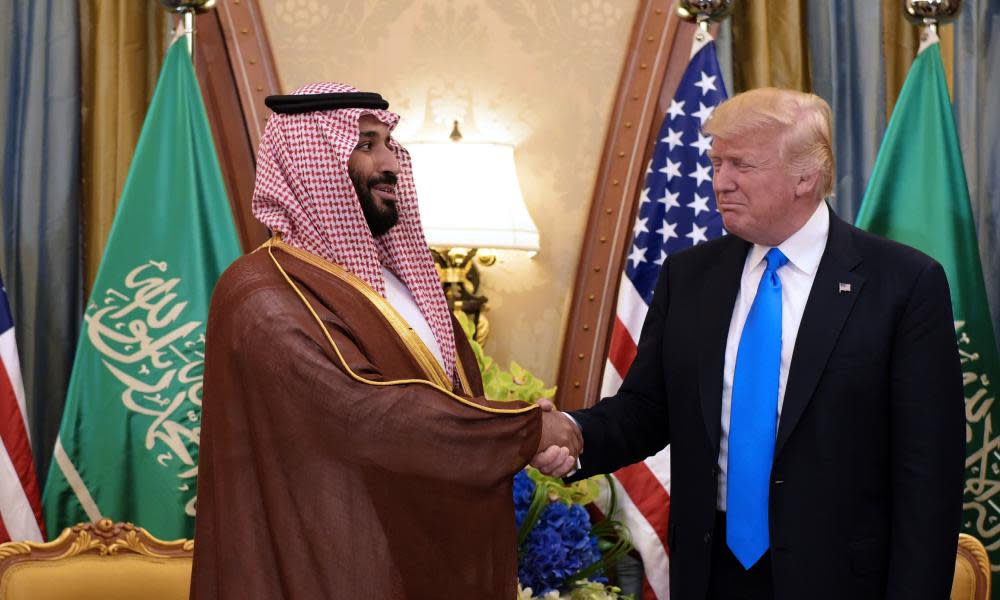Trump inflated importance of Saudi arms sales to US job market, report says

US arms sales to Saudi Arabia give Washington extensive leverage on Riyadh, while accounting for fewer than 20,000 US jobs a year – less than a twentieth of the employment boost Donald Trump has claimed – according to a new report.
Trump has repeatedly cited the importance of Saudi arms sales to the US economy as a reason not to cut the supply of weapons in response to the murder of the Saudi writer and Washington Post columnist, Jamal Khashoggi.
The president has frequently estimated the total extent of defence sales to the Saudi regime at $110bn, and variously said they would generate 450,000, 500,000 or 600,000 jobs.
According to a report by the Centre for International Policy thinktank in Washington, those figures are hugely inflated. The report, US Military Support for Saudi Arabia and the War in Yemen, argues that Saudi Arabia needs the US far more than the other way round, and the administration is underplaying its hand, if it wants to rein in Riyadh in Yemen – or punish the monarchy for Khashoggi’s murder at the Saudi consulate in Istanbul.
Observers of the Trump White House argue that there are other factors in play behind Trump’s staunch defence of the Saudi monarchy, and the crown prince, Mohammed bin Salman, in particular. Saudi support is critical to the administration’s priority in the Middle East, exerting extreme pressure on Iran in the wake of Trump’s scrapping of the 2015 nuclear deal with Tehran. There is also a personal financial motive. Saudi block bookings have helped boost otherwise flagging revenues at Trump’s hotel in New York.
The actual value of US arms sales to Riyadh since Trump took office is $14.5bn, the report says.
Even that figure refers to “letters of offer and acceptance” for new weaponry and support equipment, which is just one step in a longer process involved in arms transactions. It does not represent actual signed contracts. All of the major sales in the pipeline were initiated by the Obama administration, which was seeking to appease Saudi Arabia to counterbalance the Iran nuclear deal.
The report’s author, William Hartung, said it was difficult to pin a precise number of jobs to that volume of sales.
“If we take a generous approach and include all jobs created in direct assembly and production of components, along with the jobs induced by the spending of wages by workers employed in assembly or component production, the $2.5bn in annual arms deliveries to Saudi Arabia would create 17,500 jobs in any given year,” Hartung wrote, pointing out that it was a tiny fraction of 1% of the 160 million US workforce.
In defending his support of Riyadh, Trump has suggested that other arms suppliers like Russia or China would quickly take any business turned down by the US. But Hartung argued that Saudi armed forces are so dependent on US hardware it would be very hard to them to change suppliers selling totally incompatible equipment.
“The preponderance of US equipment used by Saudi forces also makes it difficult for another supplier like Russia or China to replace the United States as a major supplier to Riyadh,” the report said. “It would take decades for the Kingdom to wean itself from dependence on US equipment, training and support, and new equipment might not be easily interoperable with US-supplied systems.”

 Yahoo News
Yahoo News 
